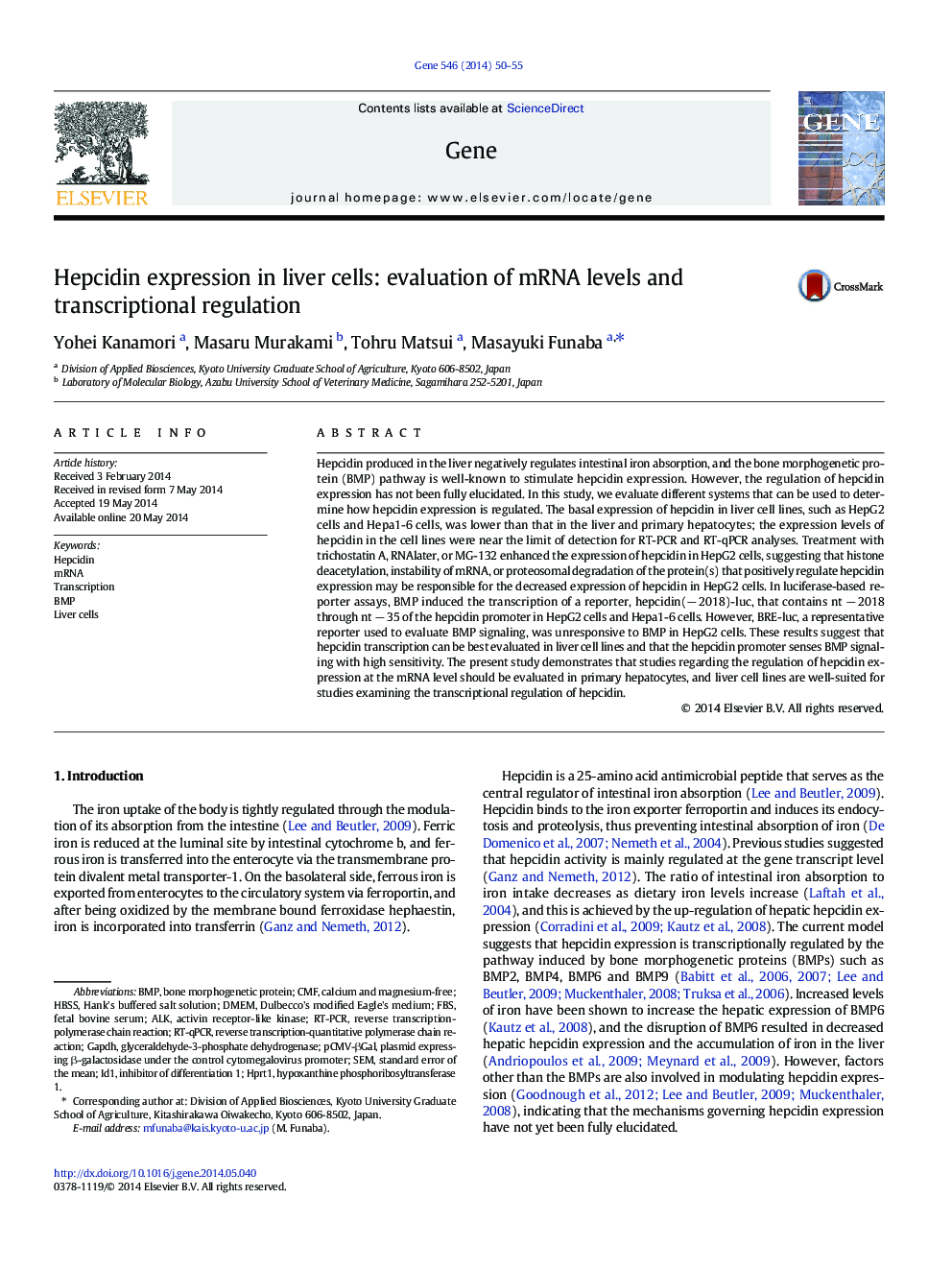| Article ID | Journal | Published Year | Pages | File Type |
|---|---|---|---|---|
| 2816311 | Gene | 2014 | 6 Pages |
•Hepcidin expression is lower in liver cell lines than in the liver and hepatocytes.•Hepcidin expression at the mRNA level should be evaluated in primary hepatocytes.•Liver cell lines are useful to examine the transcriptional regulation of hepcidin.
Hepcidin produced in the liver negatively regulates intestinal iron absorption, and the bone morphogenetic protein (BMP) pathway is well-known to stimulate hepcidin expression. However, the regulation of hepcidin expression has not been fully elucidated. In this study, we evaluate different systems that can be used to determine how hepcidin expression is regulated. The basal expression of hepcidin in liver cell lines, such as HepG2 cells and Hepa1-6 cells, was lower than that in the liver and primary hepatocytes; the expression levels of hepcidin in the cell lines were near the limit of detection for RT-PCR and RT-qPCR analyses. Treatment with trichostatin A, RNAlater, or MG-132 enhanced the expression of hepcidin in HepG2 cells, suggesting that histone deacetylation, instability of mRNA, or proteosomal degradation of the protein(s) that positively regulate hepcidin expression may be responsible for the decreased expression of hepcidin in HepG2 cells. In luciferase-based reporter assays, BMP induced the transcription of a reporter, hepcidin(− 2018)-luc, that contains nt − 2018 through nt − 35 of the hepcidin promoter in HepG2 cells and Hepa1-6 cells. However, BRE-luc, a representative reporter used to evaluate BMP signaling, was unresponsive to BMP in HepG2 cells. These results suggest that hepcidin transcription can be best evaluated in liver cell lines and that the hepcidin promoter senses BMP signaling with high sensitivity. The present study demonstrates that studies regarding the regulation of hepcidin expression at the mRNA level should be evaluated in primary hepatocytes, and liver cell lines are well-suited for studies examining the transcriptional regulation of hepcidin.
